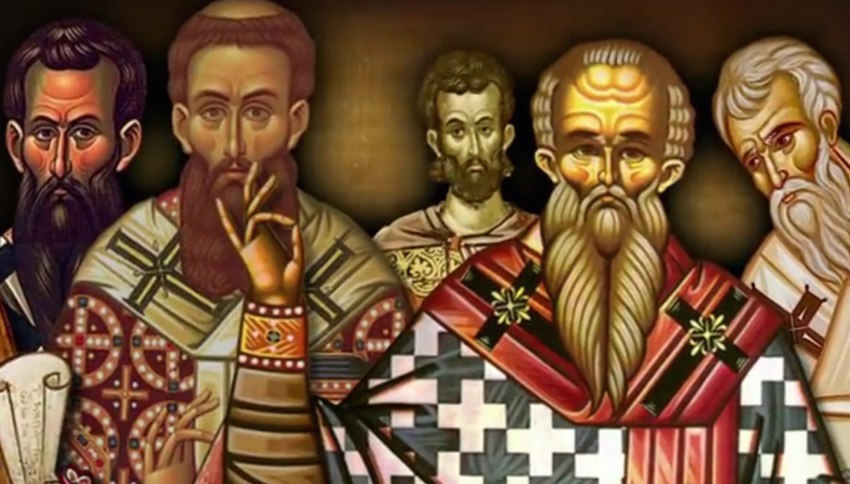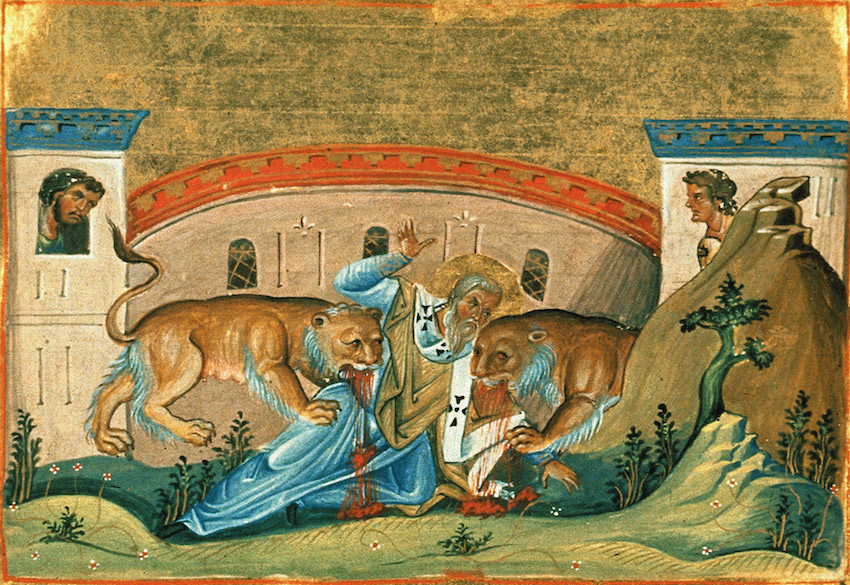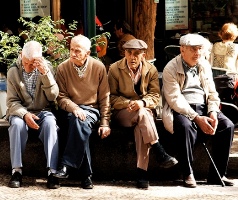Why Go To Church When I Can Pray At Home?

I saw on Twitter a few weeks ago a Protestant minister asking her Twitter followers how they would respond to someone who doesn’t see why they should go to church on Sunday. I don’t think there’s a compelling argument that can really be given for this if one begins with “general” Protestant presuppositions. However, I wanted to put together a post of what some Saints of history have said on the matter…
St. John Chrysostom answers this question briefly when he writes:
They say: ‘We can pray at home.’ You are deceiving yourself, O man! Of course,
one can pray at home. But it is impossible to pray there as in church, where such
a multitude of hearts are uplifted to God, merging into one unanimous cry. You
will not be so quickly heard while praying to the Master by yourself, as when
praying together with your brethren, for here in church there is something
greater than in your room: Agreement, unanimity, the bond of love, and finally
here are the prayers of the priests.
The priests stand before us, then, so that the prayers of the people, being weak,
would be united to their more powerful prayers and together with them ascend to
heaven. The Apostle Peter was freed from prison, thanks to the common prayers
offered for him…. (Act 12:5-17). If the Church’s prayer was so beneficial for the
Apostle Peter and delivered such a pillar of the faith from prison, why, tell me, do
you disdain its power and what kind of justification can you have for this. Listen
to God Himself, Who says that the multitude of people who pray to him with
fervor moves Him to have mercy. He says to the Prophet Jonah: ‘Shall I not spare
Nineveh, that great city, in which dwell more than 120 thousand people.’ He did
not simply mention the multitude of people but that you might know that prayer
together has great power.
St. John Crysostom
St. John of Kronstadt adds:
Here in church is the one thing needful; here is a refuge from vanity and the
storms of life; here is the calm harbor for souls seeking salvation; here is
incorrupt food and drink for souls; here is the light, which enlightens every man
who comes into the world; here is pure spiritual air; here is the well of living water
springing up into everlasting life (John 4:14); here the gifts of the Holy Spirit are
distributed; here is the cleansing of souls. … Here in church, a man will come to
know the true nobility of his soul, the value of life and its aim or his assigned path;
here he dispels the fascination of worldly vanity and worldly passions by
acquiring sobriety in his soul; here he comes to know his destiny, both temporal
and eternal; here he comes to know his bitter, profound fall and seduction by sin;
here the Savior is to be found, particularly in His holy and life, creating Mysteries,
and His salvation; here a man comes to know his true relationship with God and
his neighbor or with his family and the society in which he lives. The church is an
earthly heaven, the place where the closest union with the Divinity occurs; it is a
heavenly school which prepares Christians for heavenly citizenship, teaching
them about the ways of heaven, about the dwellings of heaven; it is the threshold
of heaven; it is the place for common prayer, for thanksgiving, for glorifying the
Triune God, Who created and preserves everything; it is unity with the angels.
What is more precious and more honorable that the church? Nothing. During the
divine service, as on a chart, the whole destiny of the human race is depicted,
from beginning to end. The divine service is the alpha and omega of the destiny of
the world and of men.
St. John of Kronstadt
However, I think St. Ignatius of Antioch is most powerful:
For if I in this brief space of time, have enjoyed such fellowship with your bishop — I mean not of a mere human, but of a spiritual nature — how much more do I reckon you happy who are so joined to him as the Church is to Jesus Christ, and as Jesus Christ is to the Father, that so all things may agree in unity! Let no man deceive himself: if any one be not within the altar, he is deprived of the bread of God. For if the prayer of one or two possesses Matthew 18:19 such power, how much more that of the bishop and the whole Church! He, therefore, that does not assemble with the Church, has even by this manifested his pride, and condemned himself. For it is written, God resists the proud. Let us be careful, then, not to set ourselves in opposition to the bishop, in order that we may be subject to God.
The Epistle of Ignatius to the Ephesians




 As you’ll see from the categorization of this entry, this is an
As you’ll see from the categorization of this entry, this is an 


